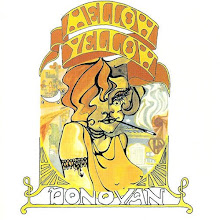Now I Will Look at Flowers
I am taking a day off today for R&R, and found myself stressed out while reading the news. Our country makes me crazy. Now I will slow it down. I will look at flowers. And Jim Harrison.

"On the morning of September 11, one can imagine that the air over New York City was thick with rising prayers that were too frightened to have verbs and nouns, but shared the noises that creature world makes when desperation and hysteria are so closely allied - or so it seemed watching on television the people running, their faces transfixed well beyond fear.

The intellectual or "learned man" can feel trapped by his cynicism about not only angelic spheres but the very notion of a religion itself. To whom may a bainy anthropologist turn in dire straits? He can repeat a hundred names for God from a hundred cultures, utter dozens of liturgical verses, picture the ancient friezes, tablets, scrolls with which cultures try to frame reality in an acceptable manner. At this point it might not be helpful for our anthropologist to turn to our own historically peculiar culture, in which the most public manifestation of devotion appears to be money. On my long way back from Montana to Michigan after the September 11 tragedy, many motel marquees read, IN GOD WE TRUST, a message that is also on our money. I would have preferred something on the order of, "We pray that this doesn't happen again".Part of the impulse of the Methodist missionaries in getting the Lakota to wear trousers was that the Lakota would then work to get money to put in their trouser pockets, replacing their love of hunting, dancing, lovemaking, and fighting.
And neither is the kind of religion that presupposes a virtue to wealth helpful at this moment in time. Among a certain group, religion is used to effectively cleanse money, and the Gospel's admonition to take care of the poor is misinterpreted as "a few of the poor." How many times have we heard that five million children go to bed hungry every night? Certainly not as many times as we've seen pieces on the laudatory aspects of great wealth. The top 2 or 3 percent of our population have had a decade-long field day that never trickled down to the bottom 50 percent, who have become virtual social mutants. In my own lifetime I've seen the apotheosis of greed as a virtue, and brutal insensitivity become enlightened self-interest. We may do well for ourselves, but that scarcely makes us a Christian nation, except to those who bathe in patriotic gore out of habit and stupidity. Neither the emperor and consorts, not the citizenry, are wearing the sacramental clothing that they think they are wearing. A simple, private reading of the Gospels would tell them so.

I think that I was nineteen when Rimbaud's "Everything we are taught is false" became my modus operandi, partly because Rimbaud's defiance of society was vaguely criminal and at nineteen you try to determine what you are by what you are against. I was on the run between New York, Boston, San Francisco, and Michigan by thumb, or Greyhound bus if I was flush. My baggage was of enormous consequence: a change of clothes, but mostly anthologies of Russian and Chinese poetry, volumes of Rimbaud and Apollinaire, William Blake, copies of poems of John Clare and Christopher Smart, and a few Dostoevsky novels. Only recently have I realized the degree to which these books were my religious texts; their intent was to teach me the secrets of reality, in short, to explain the meaning of life. In honor of the admission that htere might be a world outside my head, I unsuccessfully took courses in economics, anthropology, and forestry. But it is poetry that has stuck with me as a solution. Organized religion seems to be aiming as low as the media, which has of late become an industry of alarm. Poetry is free from the predominance of profit, and the best of it offers up no lies.Down on the border we don't have much ambient light, so the stars can be dense and almost milky. I have thought while looking at them of Gandhi's notion that it's pleasant that there will be no religions in heaven. I'm certainly not going to allow my blank wall of incomprehension to temper my reverence for nature and the universe." (Jim Harrison, How Men Pray)



0 Comments:
Post a Comment
<< Home